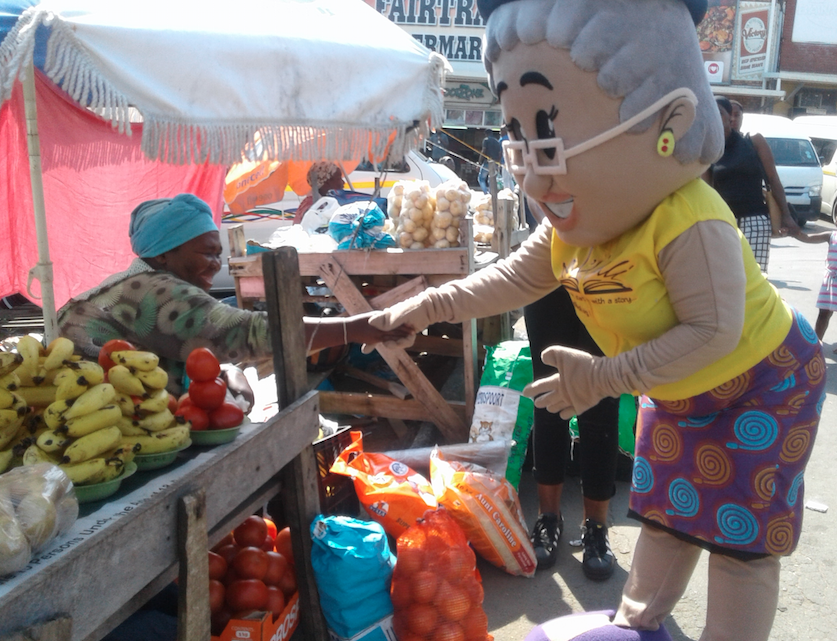Cokisa Sicwebu is a Kwa Zulu-Natal-based Nalibali literacy mentor. She is in charge of seven story sparkers and oversees 35 schools in the remote rural Ugu district near Port Shepstone, spanning Hibberdene and the Mtwalume district. Heather Robertson chatted to her about how she manages to encourage the love of reading in these communities.

Why did you get involved as a Nal'ibali literacy mentor?
I am a literacy activist at heart. I am a drama school graduate from Tshwane University of Technology and have always been a storyteller. As a literacy mentor, I get to use my drama in storytelling and literature. When I was told I would be working with disadvantaged people in rural KwaZulu-NataI, I was very keen to get involved because the focus on the rural child touched my heart. I am also a rural child. I come from Maclear in the Eastern Cape and we were not exposed to books written in our home language. Now, we are exposing mother-tongue storytelling and reading to the children and we are trying to revive the culture of storytelling at home. Now even grandmothers don’t tell stories anymore because they don’t see the need to, when everyone has television and cellphones. At a workshop I met a grandmother who told me she remembered stories told to her by her grandmother and she was going to start telling these stories to her grandchildren. She thanked Nal'ibali for bringing back the culture of storytelling.
How does what you do as a literacy mentor for Nal'iBali differ from other literacy programmes?
Some literacy programmes just deliver books to schools. We recruit volunteers from communities to be involved in our schools. Our story sparkers visit different schools every day. Volunteers from the community follow up the story sparker activity throughout the week. What is amazing is that we don’t just have one activity in the morning, we have it during the day and then we have afternoons where we have reading clubs. One is a story sparker reading club, another is a teacher-led reading club and a reading club in which we involve our communities.
How do you inspire the love of reading amongst story sparkers, principals and the community?
First, you need to be a reader yourself. You can’t tell a child to read if you don’t do it. When you get to communities, simple things like teaching children how to tie their shoelaces win over parents to read more to their children. I inspire them by letting them go wild and read what they like when they like. Some headmistresses have come back to me and shown me that something as small as reading a children’s book has inspired them to write.
What does your role as a mentor entail?
I need to make sure all my 35 schools are on par, that all my story sparkers are at school. I have to go to all the schools to make sure activities are taking place, make sure the Nal’ibali storytelling programme is running and I regularly check up on and train community members in reading for pleasure.
What are the challenges involved in getting to remote schools in your area?
The terrain at some schools is the worst. I drive on gravel roads, over mountains. Today I was so scared – I was driving through sugar cane farms and you never know what will jump out at you. Some places have no network or cellphone coverage; there are schools where you have to go over three rivers to get to school. When it rains, the rivers flood and the teachers have to wait three weeks until the water subsides. You drive by faith, but I love what I do and go to bed with a happy heart.
What do you think is the greatest impact of the Nal’ibali programme on children?
I have realised that a lot of the children are scared of everything, yet when we come to school the children start singing and they are so excited to see us. The greatest impact we can have is to let a child be a child, let a child express themselves via reading and writing for fun … somehow to tell them it is ok to think, it's ok to write left-handed, it’s ok to be yourself. By working with communities, we are helping parents also grow confidence in their own abilities. Families need to know that they are their children’s first teachers, that even if they have not finished school, they can still teach their children by telling them stories or by taking them to a grocery store and reading the labels.
